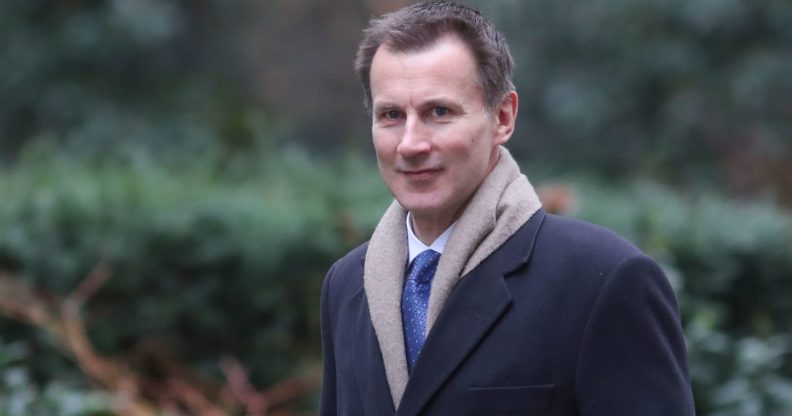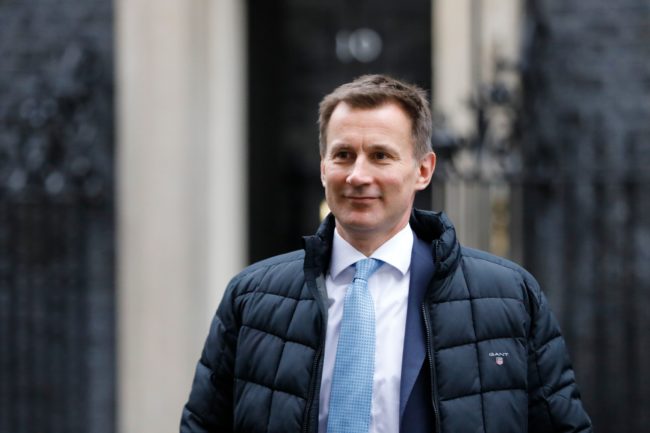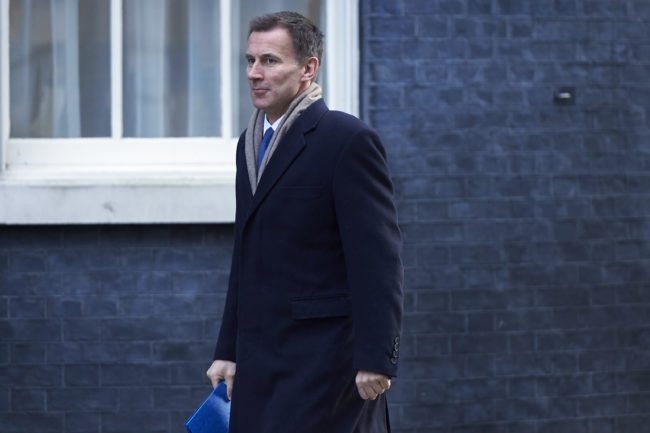Jeremy Hunt responds to anti-LGBT group that wants to ban transgender teen treatments

Britain’s Health and Social Care Secretary Jeremy Hunt (Photo by DANIEL LEAL-OLIVAS/AFP/Getty Images)
Health Secretary Jeremy Hunt has responded to an Christian anti-LGBT campaign group that is attempting to ban treatment for transgender teens.
The anti-trans campaign was run by Voice for Justice UK, a Christian group that has also called for a ban on teaching children about homosexuality, and has hit out at churches that affirm gay members.
A petition by the group, which amassed more than 8,000 signatures, called for “medical intervention to change gender, whether surgical or by the administration of sex changing hormones, to be banned below the age of 18”.
Surgery is not performed on underage transgender teens, who are generally only offered reversible puberty blockers and in some cases hormone treatments.

Britain’s Health and Social Care Secretary Jeremy Hunt (Photo by TOLGA AKMEN/AFP/Getty Images)
The group wrote: “If a young person cannot legally buy a glass of beer below the age of 18, how is it we encourage them to make life changing decisions involving the surgical mutilation of an otherwise healthy body, lifelong infertility, and with a life time spent on sex change hormones carrying well documented health risks and shortening life expectancy?”
“This cannot be right. While a child is free to choose to adopt the style of dress and manners of the opposite gender, for their future wellbeing, we call on Government to make illegal the offer of irreversible and life changing medical treatments for all children under the age of 18”.
The Department of Health and Social Care, headed by Mr Hunt, published a response “noting” the group’s concerns.
It said: “The Department of Health and Social Care notes the petition’s call for the banning of medical intervention to change gender, whether surgical or by the administration of sex-changing hormones, for people below the age of 18
“With regard to young people’s consent to these procedures and treatment, the department’s position is that patients have a fundamental legal and ethical right to determine what happens to their own bodies.”

Britain’s Health and Social Care Secretary Jeremy Hunt (Photo by NIKLAS HALLE’N/AFP/Getty Images)
It emphasised: “The NHS has strict guidelines regarding the prescription of puberty-blocking and cross-sex hormones for young people.
“These drugs may only be prescribed with the agreement of a specialist multidisciplinary team and after a careful assessment of the individual, and generally once the patient is around 15 years old for hormone blockers and 16 years old for cross-sex hormones.”
It continued: “Valid consent to treatment is therefore central to all forms of healthcare, from providing personal care to undertaking major surgery.
“If children have the capacity to give consent for themselves, then consent should be sought direct from them. Once young people reach the age of 16, they are presumed in law to be competent to give consent for themselves for their own surgical, medical or dental treatment, and any associated procedures, such as investigations, anaesthesia or nursing care.”
“A person under 16 will be competent to give valid consent to a particular intervention if they have ‘sufficient understanding and intelligence to enable him or her to understand fully what is proposed’… [and] if a child is not competent to give consent for themselves, consent should be sought from a person with parental responsibility.”

